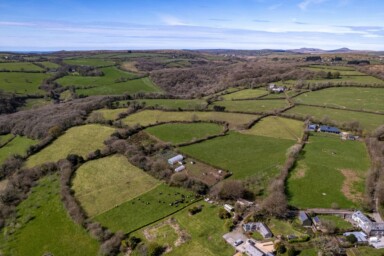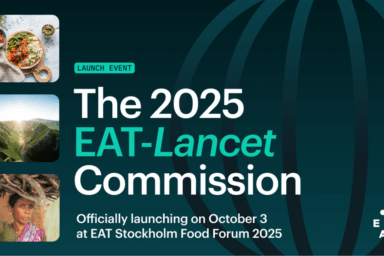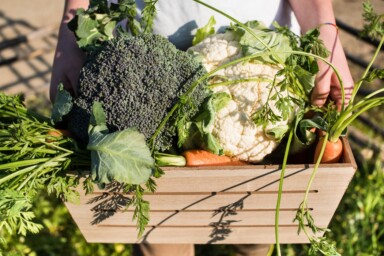As part of our exploration of Brexit and future agricultural policy, we invited Dr Viviane Gravey to write about Northern Ireland. Dr Gravey is a Lecturer in European Politics at Queen’s University Belfast, and co-chair of Brexit and Environment, an academic network investigating how Brexit is changing UK environmental policies and governance.
Agriculture has often been portrayed as an area which is likely to benefit from Brexit – the European Union’s Common Agricultural Policy had long been criticised by farmers, politicians and environmentalists, and Brexit is putting agriculture firmly on the UK’s domestic political agenda. But more than three years after the EU Referendum of June 2016, the sunlit uplands of renewed agricultural policy are taking time to materialise. In Westminster, the Agriculture Bill has been saved from the dead with the cancellation of prorogation, but progress on the bill had long stalled. We are still far from agreeing a post-Brexit agricultural policy for England – with similar uncertainties remaining in the rest of the UK.
Agriculture is a devolved competence in the UK – which means Westminster sets policy for England, but Wales, Scotland and Northern Ireland can develop their own policies. Currently, we see a lag between policy debate and development in England and the rest of the UK. This delay is particularly the case in Northern Ireland (NI). We are nearing 1000 days of political limbo with no devolved government, nor direct rule from Westminster, leaving NI civil servants with no political guidance, nor political cover, for ambitious policy change. Yet it is critical that a NI-specific agricultural policy is developed, instead of a policy developed for England made common by default: agriculture in the UK is far from uniform.
The latest Statistical Review of NI Agriculture shows how farming in Northern Ireland is characterised by (much) smaller farm businesses (77% are “very small”, “unlikely to provide full-time employment or an adequate income solely from farming activities”) with an average of 41 hectares in size – almost twice as small as the UK 81 hectare average – a predominance of owner-occupier and not tenanted land (over 70%), and grazing livestock (90% of farms).
How is policy being developed in this political vacuum? We can see two parallel strands – one inside the civil service, where proposed changes are kept to a minimum, and one outside, led by civil society, where ambition is far greater.
Despite the lack of government, civil servants last year launched a public engagement exercise on future policy (a consultation would have required ministerial sign-off) which can provide some indication of future policy. Critically, while the public engagement exercise was built on the back of engagement with the farming, agri-food and environmental sectors, it is important to note it was not condoned by the main political parties who will, eventually, have to decide on the direction of policy, be it in London or Belfast. Taking place months after the DEFRA ‘Health and Harmony’ consultation, the Northern Irish document is clearly inspired by the Westminster direction of travel. As with ‘Health and Harmony’, we can see a shift towards payments for public goods, based on results. Conversely, the Northern Irish plan floats the continuation of a (much reduced) rate of direct payments, and, as its Welsh counterpart, talks of economic resilience alongside the Westminster focus on productivity. Critically, the turn towards public payment for public goods across the UK appears to be, as expected, at the expense of direct payments, but also, perhaps less expected, at the expense of rural development funding and scope for rural development action under the umbrella of agricultural policy.
The other big gap in the four governmental plans is food. All four appear, despite some divergence, to share both key positive (such as greater emphasis on public money for public goods and calls for training and knowledge transfer support) and negative points (food and rural development objectives are downplayed). Surprisingly perhaps, as Brexit offered the opportunity for a profound rethink, the proposals do not appear to move far from conventional agricultural policy, nor do they offer massive differences in approach between the four nations.
But the absence of a government in Northern Ireland, coupled with the lack of progress on the Agriculture Bill in Westminster, is fueling alternative proposals. September 2019 saw the launch of the new report on Northern Ireland by the RSA Food, Farming and Countryside Commission proposing a very different path forward, with a broader scope beyond agriculture, to also include issues of food systems, health and rural communities. This report puts the emphasis on building trust, reconnecting farmers to their land, citizens to their food and city and countryside dwellers to the nature around them, properly valuing the work of farmers and the local environment. The report acknowledges NI’s major challenges – its small size, small farms and the border cutting through agri-food supply chains. But these challenges can be turned into opportunities: as the authors of the RSA report argue, “Northern Ireland is a small place and it is possible to bring the key stakeholders from government and wider society together in one room.” Such efforts have started already – the Department for Agriculture, Environment and Rural Affairs set up stakeholder groups in the wake of the referendum – but it will take time and courage to bridge long-held distrust between sectors and communities.
What it will also take, is radical policy proposals. The farmers of Northern Ireland – most of whom cannot draw a decent living from farming alone, occupying small farms, many in least favoured areas not amenable to different forms of farming – will need to be supported in implementing sustainable land use. By putting a decent living for farmers and agri-food workers as their first proposed outcome, the RSA FFC Commission echoes the CAP’s own objectives. CAP subsidies, in the form of the CAP Basic and Greening Payments as well as agri-environment schemes, represent a large share of UK farmers’ income – on average 70% of the total income from farming for 2018although that proportion differs by region and forms of farming. ‘Health and Harmony’ critically speaks of phasing out income support measures, which would put at risk farms most dependent on subsidies. Conversely, the RSA FFC report proposal would help maintain a rural economy. But a decent income is only one of ten outcomes, ranging from the idea that public money should be spent “in a way that contributes to the common good”, to making the countryside accessible and nurturing a culture of good food (in variety, quality and access).
Hence, the political stalemate in Stormont and Westminster, far from stifling the debate, is letting stakeholders’ ideas take centre stage in debating what a future agricultural policy in NI should look like. But this lively debate can only get us so far: even if farmers, rural communities, environmentalists and consumers in NI were to agree, they would still be missing a Government to enact any policy.






